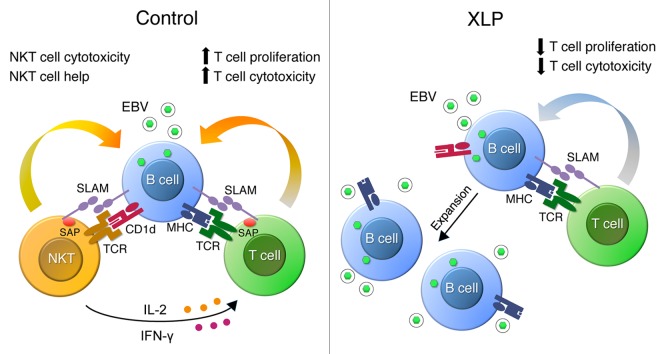Figure 1. Proposed mechanism by which natural killer T cells act to restrict early Epstein–Barr virus replication. In healthy individuals, natural killer T (NKT) cells rapidly recognize and mediate direct cytotoxicity of newly-infected CD1d+ B cells, and provide “help” to stimulate NK cell (not shown) and antigen-specific T cell responses through the production of IFNγ and IL-2, thereby limiting EBV infection. By contrast, XLP patients, who lack NKT cells, have sub-optimal and slower adaptive responses to EBV infection. Delayed recognition of EBV-infected B cells may lead to an increased number of EBV-infected B cells and increased viral load. SLAM-SAP interactions may also be critical for mediating costimulation signals necessary for the optimal activation of T cells and NK cells. EBV, Epstein–Barr virus; IFNγ, interferon-γ; SAP, SLAM-associated protein; SLAM, signaling lymphocytic activation molecule; TCR, T-cell receptor, NK, natural killer; NKT, natural killer T; XLP, X-linked lymphoproliferative disease.

An official website of the United States government
Here's how you know
Official websites use .gov
A
.gov website belongs to an official
government organization in the United States.
Secure .gov websites use HTTPS
A lock (
) or https:// means you've safely
connected to the .gov website. Share sensitive
information only on official, secure websites.
